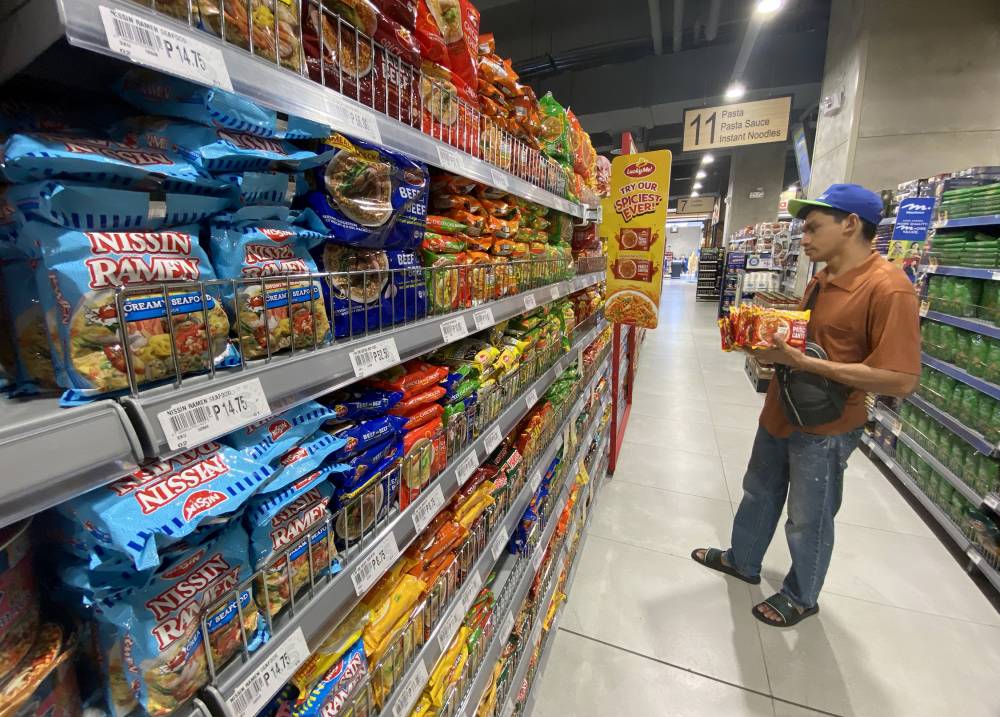Instant noodle makers admit need to make product healthier

Instant noodle makers are heeding the global call for healthier food products by cutting down on the use of what are considered unhealthy ingredients, mainly salt, sugar and fat.
This is part of what Mitsuru Tanaka, managing executive officer of Japanese food giant Nissin Foods Holdings, calls a “challenge target” that the World Instant Noodles Association (Wina) has set.
“A global food for people, it is very important to protect consumer’s health and their quality of life through instant noodles,” Tanaka said on Tuesday, the first day of the Wina summit being held at Shangri-La Hotel in Taguig City.
Tanaka, who also chairs the association’s food safety and security panel, said they also aim to add more essential nutrients to their products.
With specific threshold levels yet to be set by the association, Tanaka said the targets imply a general policy direction instead of exact figures, which are hard to establish given the different markets of each of their members.
PH a major market
The Philippines, being a major market for instant noodles, is expected to benefit widely from this policy direction.
The country ranked 7th among Wina’s top 15 global markets, with an estimated 5.4 million servings consumed in 2023 largely due the popularity of “pancit canton” among Filipinos.
In 2023, global data insights and consulting firm Kantar tracked spending patterns of 5,000 households on fast-moving consumer goods and found that the Lucky Me noodle brand was the most bought among Filipinos.
From a broader, global perspective, Wina puts the global demand for instant noodles at 100 million meals a year, with consumption being the highest in China, Indonesia, India, Vietnam, Japan, and the United States.
Health, environment concerns
The Wina challenge target focuses on four key pillars, namely nutrition and health, environmental sustainability, food safety, and solving social issues.
“Until today, the Wina challenge target has only been internally shared. However, we’d like to announce it publicly for the first time,” Tanaka pointed out.
“Through this announcement, we are focusing the entire instant noodle industry to unite and cooperate with government agencies and other organizations to work on various social issues we face,” he added.
The instant noodle industry is also moving toward more sustainable practices by shifting to biodegradable packaging and the use of other eco-friendly materials to reduce plastic waste.
There is likewise a big push to use sustainably sourced ingredients to ensure that the production processes are environmentally friendly.
Too much sodium
The World Health Organization (WHO), in a commentary dated Feb. 7 this year, lamented that people in almost all countries are consuming too much sodium.
It noted that the global average intake of adults is 4,310 milligram (mg) a day of sodium (equivalent to 10.78 g/day salt).
This is more than double the WHO recommendation for adults of less than 2000 mg/day sodium (equivalent to less than 5 grams a day salt, or approximately one teaspoon).
As an example, a 65-gram pack of Lucky Me Bulalo Instant Noodles has 2,070 mg of sodium.
“The primary health effect associated with diets high in sodium is raised blood pressure which increases the risk of cardiovascular diseases, gastric cancer, obesity, osteoporosis, Meniere’s disease, and kidney disease,” the WHO warned.
An estimated 1.89 million deaths each year are associated with consuming too much sodium.
Reducing sodium intake is one of the most cost-effective measures to improve health and prevent noncommunicable diseases.





















